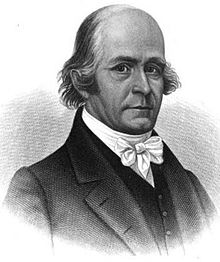Paul Brigham
| Paul Brigham | |
|---|---|
 |
|
| 2nd Governor of Vermont | |
|
In office August 25, 1797 – October 16, 1797 |
|
| Lieutenant | Himself |
| Preceded by | Thomas Chittenden |
| Succeeded by | Isaac Tichenor |
| 2nd and 4th Lieutenant Governor of Vermont | |
|
In office October 14, 1815 – October 23, 1820 |
|
| Governor | Jonas Galusha |
| Preceded by | William Chamberlain |
| Succeeded by | William Cahoon |
|
In office October 13, 1796 – October 23, 1813 |
|
| Governor |
Thomas Chittenden (1796–1797) Himself (1797) Isaac Tichenor (1797–1807) Israel Smith (1807–1808) Isaac Tichenor (1808–1809) Jonas Galusha (1809–1813) |
| Preceded by | Jonathan Hunt |
| Succeeded by | William Chamberlain |
| Personal details | |
| Born |
January 6, 1746 Coventry, Connecticut |
| Died | June 15, 1824 (aged 78) Norwich, Vermont |
| Political party | Democratic-Republican |
| Spouse(s) | Lydia Sawyer |
| Profession | Soldier / Judge / Politician |
Paul Brigham (January 6, 1746 – June 15, 1824) was an American Revolutionary soldier and Democratic-Republican politician. He was the first lieutenant governor of Vermont after that state was admitted to the Union in 1791, and upon the death of Vermont's first governor Thomas Chittenden, served as governor for the last seven weeks of Chittenden's term. (During the 14 years before admission to the Union, when Vermont was a largely unrecognized state, several others served as lieutenant governor and two persons served as governor.)
Brigham, son of Paul and Catherine (Turner) Brigham, was born January 6, 1746, in Coventry, Tolland County, Connecticut. He married Lydia Sawyer (of Hebron, Connecticut) on October 3, 1767, and the couple had five children.
Brigham served from January 1, 1777 to April 22, 1781 as a captain in the Connecticut Militia during the American Revolutionary War. He was a company commander of Continental troops under the command of General George Washington and wintered in Valley Forge during the winter of 1777.
In the spring of 1782 Brigham and his family moved to Norwich, Vermont, where he was a farmer and a land speculator. He served as high sheriff of Windsor County, Vermont, for five years and as major general of the Vermont Militia. He was chief judge of the county court for five years, and was a presidential elector for Vermont in 1792. He was on the Governor's Council from 1792 to 1796.
...
Wikipedia
